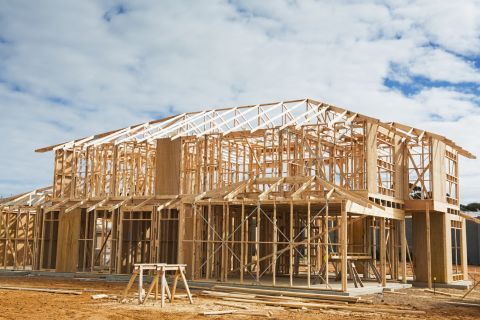A housing crisis is unfolding for many older people
In the 2023 National Seniors Social Survey, housing affordability, security, and options to age in place were all pressing issues for older Australians.

The Australian welfare system, including the Age Pension, was designed on the assumption that older people own their home and can age there.
But the latest National Seniors Australia research has shown this to be far from true for many of us.
In February this year, the 11th National Seniors Social Survey, or NSSS-11, asked more than 5,300 people aged 50 and over about their housing situation.
It revealed housing affordability concerns plague two-thirds of us, and more than half are living in homes unsuitable for later life because they need modifications, security of tenure, or assistance to manage their size.
The findings are consistent with the alarm bells already ringing across the country about rental and mortgage crises, showing they affect older people as well as the young.
However, they also ring a new alarm bell by suggesting that the current trend towards home-based aged care will simply not be sustainable.
Survey respondents were asked if they were concerned about their ability to afford suitable housing during the 12 months following the survey, and during the rest of their lives.
One third (34%) were concerned for the short term, with the level of concern ranging from “only slightly” (20%) to “quite” (9%) to “acutely concerned” (5%).
The figure almost doubled to two-thirds (65%) when respondents were thinking about the remainder of their life.
Unsurprisingly, people who rented were nine times more likely than everyone else to be “quite concerned” or “acutely concerned”. Those with a mortgage were four times more likely to feel that way.
Having higher savings or being in an older age group provided some protection against concern.
In written comments, people elaborated on the sources of worry about affordability.
These included:
The cost of buying housing, especially housing they wanted or that was accessible and age friendly.
High rent levels and interest rates.
Costs associated with retirement villages and aged care.
Costs of buying, selling, and moving.
Ongoing housing costs such as council rates, body corporate fees, and utilities.
As one person said, “House prices are going up and the cost of any renovations/adjustments are also going up quickly.”
Infographic: Is housing suitable in later life?
In 2023, National Seniors Australia asked over 5,000 people aged 50+ about their housing situation, ageing in place and willlingness to move. This infographic shows a summary of responses we received.
Housing security remains a pressing problem for renters. Commenters mentioned having been forced to move multiple times in the past few years, with one writing, “Landlords too greedy, never know if we will be asked to move, in our seventies and frail. Need more security”.
Comments also revealed that long public housing waitlists and a scarcity of retirement living options for renters contribute to the problem.
Obstacles facing older renters who want to buy, such as an inability to secure a home loan because of their age, have left people stuck in precarious rental conditions in later life.
The high costs of housing and changing life circumstances such as later-life divorce, have also left some homeowners without housing security.
Around half the survey respondents said their current home is unsuitable for ageing in place, with only 44% saying their home is suitable as is.
But options to move to age-friendly housing are stymied by multiple factors.
About a quarter (26%) said their home would be suitable with modifications. But some respondents discussed difficulties affording any renovations and problems finding tradespeople to do the work.
A tenth (10%) said they were unable to make modifications, in some cases because they were renting. A further tenth (11%) were unsure if their home was suitable.
When asked what they would like to change about their housing, the most common theme was a desire to move to a home that was smaller or more manageable in terms of housework, yard work, maintenance, and accessibility.
Alternatively, people desired paid home support to help them stay in their current home. One commenter spoke for many when they wrote, “More support with property/yard maintenance to allow us to stay in our own home”.
For 19% of homeowners, the scarcity of age-friendly housing stock and other retirement options was a major barrier to making a move.
In particular, many people identified problems finding appropriate housing in the area where they currently lived. They were concerned that they would have to move elsewhere, to areas they did not know and lacked the support and services they had come to rely upon. Having to leave their current area was a barrier to moving for 29% of people.
Some homeowners faced the related problem of owning a low-value home. For 19% of respondents this meant that if they sold their home, they could not afford to buy one they would want.
Stamp duty adds to costs and was a barrier for a third of respondents (32%), while the hassle of buying, selling, and moving was a barrier for half (50%). Some commenters remarked on the physical, mental, and/or emotional difficulties presented by moving.
Yet staying in place may not be a viable option either, with commenters noting the scarcity of homecare workers, even for people who already had an aged-care package approved.
One respondent commented, “If only there were enough service providers available to provide the services I have codes for with MyAgedCare.”
This tricky situation is a crisis waiting to happen and requires urgent national action on housing in conjunction with aged care that recognises the realities of older people’s living circumstances today.
Related reading: NSA Report - Suitable Housing in Later Life






